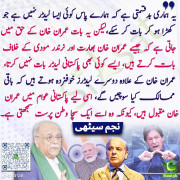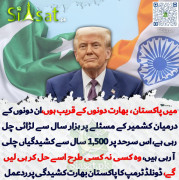For the first time in a UN vote, India sided with Israel and against the Arab world. Why?
Netanyahu pivots to Asia
Fractious relations with the West are prompting Israel to turn elsewhere

THE outcome of a vote on July 3rd at the United Nations Human Rights Council was never in doubt. In all, 41 nations voted for a report criticising Israel for its conduct in the Gaza conflict. Only America voted against it. The surprise, however, was that among the five nations abstaining was India. “For the first time in a major anti-Israel vote, India didn’t vote with the Arabs,” said one astonished Israeli diplomat.
UN voting patterns are not the most reliable gauge of geopolitics but India’s abstention is yet another small sign of Israel’s shifting relations with the rest of the world. After decades of focusing most of its diplomatic and trade efforts on Europe and America, Israel is pivoting to Asia. The shift is not entirely new, but previously low-profile diplomacy is now moving out of the shadows. It is being pulled by the rise of centre-right governments in India and Japan, the weakening clout of Arab oil-producing regimes and China’s spending spree on high-tech. It is also being pushed by a feeling in Israel that once-warm relations with traditional allies have cooled.
Indian diplomats once asked their Israeli counterparts, rhetorically: “why should you care about votes in the UN when India is buying $7 billion of Israeli arms?” But under Narendra Modi, India’s prime minister, arms deals are just part of the relationship. After Binyamin Netanyahu, Israel’s leader, won an election in March, Barack Obama openly chided him for appearing to disavow the “two-state solution” (the idea that Israelis and Palestinians should live side-by-side in separate states) and for saying disparaging things about Israel’s Arab citizens. Mr Modi, by contrast, was quick to congratulate him on Twitter in Hebrew. His office is already trailing a planned visit to Israel next year, the first ever by an Indian prime minister.
Japan’s prime minister, Shinzo Abe, is also keen to forge closer ties with Israel, which would mean softening his oil-importing nation’s traditionally pro-Arab stance. Mr Netanyahu may be unpopular in the West, but his hardline views on Islamist terrorism have won him admirers in much of Asia. Small wonder he is sending more diplomats there and urging his ministers to visit. An Israeli official recalls a very cordial 90-minute meeting Mr Netanyahu had with an Asian head of government. “At the end the Asian leader read a minute-long statement on the Palestinians which his foreign ministry had obviously prepared for him. Bibi didn’t respond and the leader said: ‘Right, let’s have lunch.’ ”
With China the ties are all about business. Dozens of Chinese businessmen and officials from all levels of government visit Israel each month. Last year Chinese companies invested nearly $4 billion in Israel, snapping up Tnuva, Israel’s largest food manufacturer, as well as a handful of high-tech start-ups. “About 40% of the money in our latest investment fund is from Chinese investors” says Fiona Darmon, a partner in a venture capital company. “They received a general blessing from Beijing to invest.”
Not everyone is overjoyed. Israeli securocrats want more scrutiny of deals with China; former Mossad chief Efraim Halevi has warned that the involvement of Chinese companies in local infrastructure projects has “strategic” implications and that China is also an ally of Israel’s enemy, Iran. During the talks on Iran’s nuclear programme China has joined Russia in calling for the international arms embargo on Iran to be lifted immediately.
Israel’s government is still trying to work out what technologies and companies it would be unwise to sell to China. Meanwhile it is full speed ahead for companies like Shengjing, a Beijing-based consulting firm which received $10m from the Chinese government to facilitate investments in Israeli technology. “There are no strings attached,” says Xueling Cao, a Shengjing director who has visited Israel 15 times in the past two years. “Our government just wants more investments in Israel.” That is music to the ears of Israeli diplomats, who in the West hear strident calls for boycotts and divestment.
http://www.economist.com/news/middl...hu?fsrc=scn/tw/te/pe/ed/NetanyahuPivotsToAsia
Last edited by a moderator:































